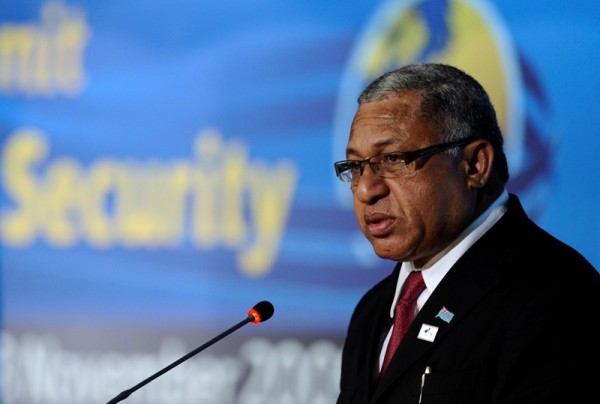Authorities in Fiji on Friday, 30 July detained the editor of an online news outlet for questioning over an article about the nation’s police commissioner.
According to local media, the editor of Fijilive.com, Richard Naidu, was taken in for questioning by police. The detention was reportedly connected to an article on the website claiming that the Fiji police commissioner had been suspended. The police maintained that the allegation was untrue.
Naidu was released the following day.
Fijilive.com was suspended over the weekend, although the government of Fiji denied any involvement in the suspension. According to the Fiji Times, the Ministry of Information permanent secretary, Sharon Smith-Johns, said the reason for the suspension of the website was a legal disagreement.
She told the Fiji Times that the staff were advised by their lawyers last Friday to stop publishing stories on their website because they had not registered the outlet with Fiji’s recently-established Media Industry Development Authority.
“This was the misunderstanding between them and it has nothing to do with the government,” she said.
Naidu’s arrest was carried out under Fiji’s “Media Industry Development Decree 2010” which was gazetted by the government on Friday, 25 June 2010 and entered into force four days later. The draconian law establishes criminal penalties for journalists whose work is deemed against the “public interest or order.” Offences against the decree are punishable by a fine of up to $10,000 FJD (approx. €4,000) or imprisonment of up to two years, and the penalty for any company which commits an offence may be as high as $100,000 FJD (approx. €39,000).
The decree limits foreign ownership of the media to not more than 10 per cent, a clause has been widely seen as a direct attack against the Fiji Times, the country’s oldest newspaper, which has repeatedly been critical of Interim Prime Minister and Military Commander Frank Bainimarama and his administration.
All media have until September 28 to ensure that their foreign ownership is reduced to a 10% stake, or face closure. The Fiji Times is 100% foreign owned and has been put up for sale after the decree. Interim Prime Minister Bainimarama told Australia’s ABC News that he would regret the closing of the Fiji Times, “because there will be a lot of job losses, but as I have continuously said, that’s not my doing. That was the doing of the management. They’ve never acknowledged me as Prime Minister of this nation, even though I’ve been Prime Minister for the last four years. It’s really not that, but what I am saying is that they are not doing the right thing by the people of this nation.”
The decree also mandates the creation of a Media Authority, whose chairman will be appointed by the president on the advice of the attorney general, and which has the authority to impose fines or jail terms on journalists. All media are required to register with the authority before a set deadline.
IPI has repeatedly voiced concerns over the backsliding of media freedom in Fiji, and the worrying implications of the decree.
“We urge the government of Fiji to look to voluntary, non-statutory forms of media regulation, and to reverse this worrying deterioration of the press freedom climate,” said IPI Interim Director Alison Bethel McKenzie.
Fijian media have long struggled with censorship and draconian media regulations. In April 2009, when the constitution of the country was suspended, the government posted censors in various publication offices, and deported several foreign journalists. The suspension was a reaction to a court’s decision that the December 2006 coup by Interim Prime Minister Bainimarama was unconstitutional.

